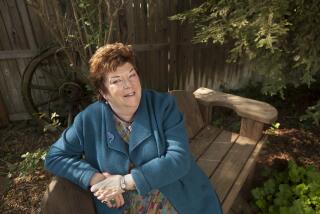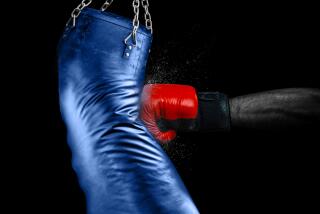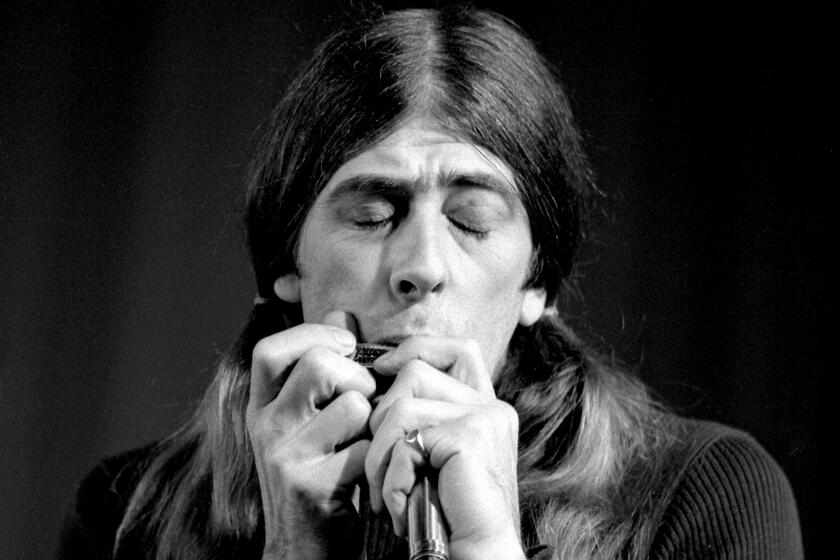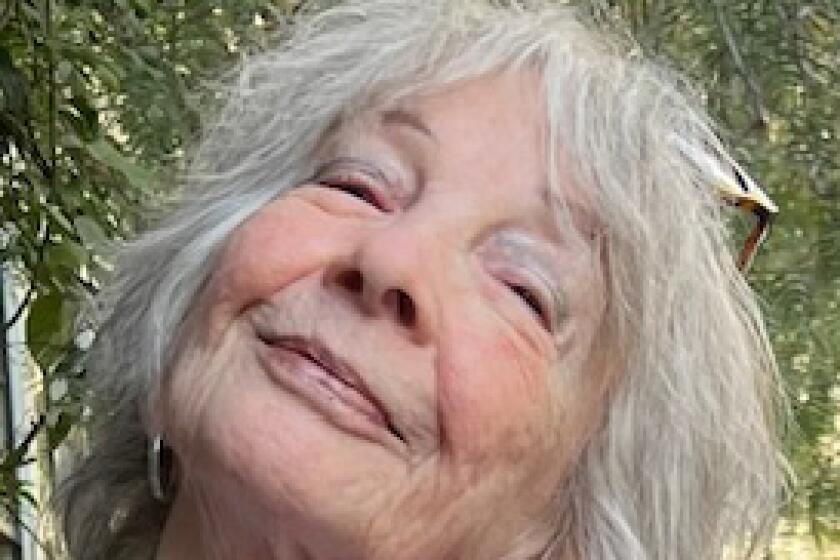John Vasconcellos dies at 82; father of California self-esteem panel
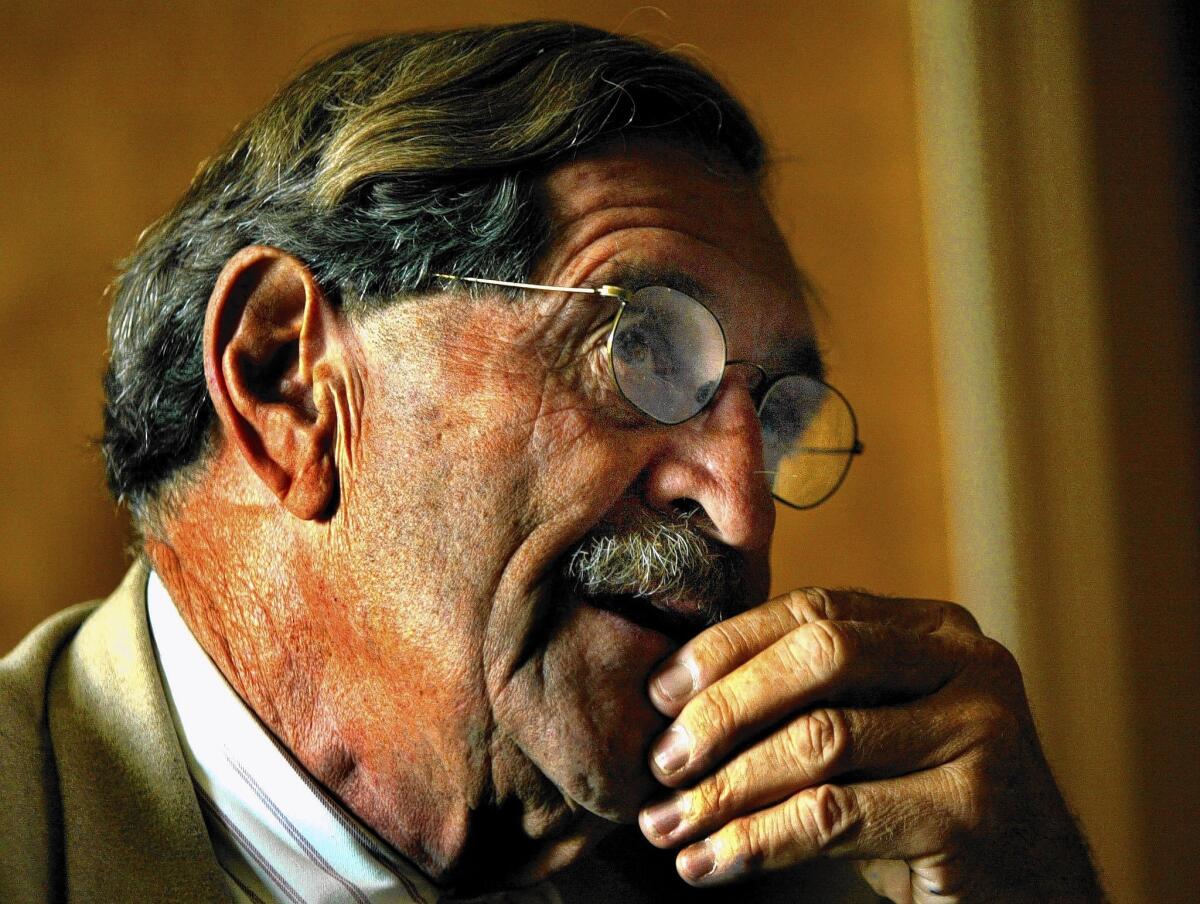
As a group, politicians have an abundance of self-esteem, but John Vasconcellos stood out for wanting to spread it around.
Vasconcellos, a Democrat who was California’s longest continuously serving legislator until term limits forced him out in 2004, was the father of California’s oft-ridiculed self-esteem commission.
He also was a tough budget strategist, a forceful advocate for education, and a deal-maker who employed an intriguing amalgam of New Age pontificating and old-fashioned horse trading. While Sacramento was, as he put it, “a cesspool of cynicism,” he maintained his powerful posts in the Assembly and then, the Senate, for 38 years, he said, with the aid of “good staff, good friends, and good therapists, in varying proportion.”
Vasconcellos, who was uncommonly open about the sometimes pained state of his psyche and his decades-long efforts to achieve wholeness as a person and as a politician, died Saturday at his Santa Clara, Calif., home, said family spokesman Rich Robinson. He was 82.
The retired lawmaker had been hospitalized for weeks as various organs failed, Robinson said. He went home, under hospice care, the day before he died.
“He was one of a kind,” said David Roberti, a former California state senator who was first elected, along with Vasconcellos, in 1966. “He was an interesting combination of the super-idealistic and the extremely pragmatic.”
It was his idealism that in 1987 launched what officially was known as the California Task Force to Promote Self-Esteem and Personal and Social Responsibility. Vasconcellos, who believed that low self-esteem was at the root of crime, drug addiction, teen pregnancy and other problems, persuaded fellow lawmakers and Gov. George Deukmejian to allocate $735,000 for a statewide commission to explore the idea.
Almost overnight, “self-esteem” became a national punch line, a code phrase for a peculiarly Californian kind of craziness. In his “Doonesbury” comic strip, Garry Trudeau lampooned the idea for weeks, making his warrior-channeling, hot tub-dwelling airhead starlet Boopsie Boopstein a member of the commission.
Vasconcellos responded with his New Age sensibilities unbruised: “Our goal was to elevate the issue of self-esteem to public awareness within California in three years,” he told People magazine. “Trudeau’s done that nationally for us in three weeks.”
Born May 11, 1932, in San Jose, Vasconcellos went through a “guilt- and shame-ridden Roman Catholic childhood,” according to a 2003 biographical sketch put together by his legislative staff. He was sent to a Jesuit boarding school and was then a standout at Santa Clara University, where he was valedictorian and class president. He also was a top student and class president at Santa Clara’s law school.
After serving with the Army in Germany, he was an aide to Gov. Pat Brown for a year. In 1966, he entered the state Assembly, where he was considered “too liberal by some, yet too conservative by other Democrats — probably because he wasn’t really sure who or what he was himself,” according to his official biography.
Driven by profound inner confusion, he devoured nearly 100 self-help books and entered years of psychotherapy, mostly based on the principles of humanistic psychology. As he worked with bioenergetics expert Stanley Keleman, he later said, his long-repressed anger, principally at his unloving father, flooded out, sometimes during legislative sessions.
“When he was a committee chair, people would approach him with a little bit of trepidation,” Roberti said. “He didn’t suffer fools gladly.”
Vasconcellos entered the Legislature with a standard-issue suit and a crew cut. Within a few years, he quit wearing ties. At one point, he let his hair grow for three years.
Ralph Keyes, writing in Human Behavior magazine in 1974, described him as projecting an image of “a modern-day Jesus, or perhaps Savanarola, stalking the halls of iniquity sternly preaching a message of joy and being rigid in his defense of flexibility.”
In 1980, Vasconcellos was appointed chair of the Assembly’s Ways and Means Committee, one of the most powerful legislative positions in state government. He was termed out of the Assembly in 1996 and was elected to the state Senate, where he remained until 2004.
Concerned with issues involving students, he helped pave the way in 2001 for a $200-million annual allocation to improve low-performing elementary schools. In 2004, he couldn’t muster the votes for his “Training Wheels For Citizenship,” an arrangement that would have given teens 14 and older the right to cast fractional votes in state elections.
In his later years, he advocated for what he called “the politics of trust,” an approach to governance that he described as “a powerful antidote to the self-defeating and debilitating practices of traditional politics.”
Vasconcellos, who lived halftime in Maui, never married but had a large extended family. His survivors include a sister, Margaret Brindle, and a niece, Beth Brindle.
More to Read
Start your day right
Sign up for Essential California for the L.A. Times biggest news, features and recommendations in your inbox six days a week.
You may occasionally receive promotional content from the Los Angeles Times.
